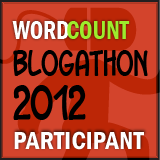Is your creativity as overflowing as this Natchez porch, or do you need a little work?
Don’t you just hate it when the cosmos gives you too many shoves toward what you should be doing? Last week I made some big statement about developing the habit of “getting started.” Like it meant something. Like I planned on working seriously on this habit. Yeah, right. Then just when I almost managed to forget that I was supposed to develop the habit of habits by focusing on a priority for five minutes each day, when I was about to get back to eating some Ben & Jerry ice cream while reading a garden magazine, well, the importance of habit slapped me upside the head again.
Since I’m so much behind in my serious reading I turned on my e-reader to give five minutes to a book that had sat there ignored since mid-summer. Jeff Goins, in You Are A Writer (So Start Acting Like One), gave me that proverbial shove. Weightlifters, he said, don’t get sore muscles like we do because they get up, push hard, and then do it again the next day. “If you practice every day you don’t get fatigued. All muscles are built this way, even creative ones,” he reminded us [my emphasis].
Oh, I see. Make it a habit.
Then when taking five minutes to catch up with blog reading, here it came again. On the Copyblogger blog, Dean Rieck hit me hard with his proclamation about a primary trait of creative people:
And to a large degree, creativity is a learned behavior. It’s a matter of how you approach things, how you act or react to new circumstances, your proclivity to look at things in different ways, your willingness to question, experiment, and take chances. In other words, creativity is not “what you are” as much as “what you do.” Think of creativity as a muscle. The more you use it, the stronger it gets.
This perspective on creativity seems to be habit-forming.
When I was deep in the academic world, every day wonderfully intelligent and creative people surrounded me as icons and mentors and inspirations. It was easy to use that part of my mind to produce ideas and paragraphs that made other people talk and think. It’s now so much harder to produce the routine of creativity when the people I should be modeling are not live presences in my day but rather only words on a page or a long-distance relationship through e-mail and social media.
I know that many great artists got up every morning and produced and pushed even if no one recognized their genius. They kept working those muscles. Their habits became a passion.
Can I be allowed thirty seconds to whine about how hard it is to build that habit of creativity if you haven’t been able to find or construct a like-minded community?
Ok. Rant over.
In the meantime, I think I’ll form my own fantasy creativity team, people who know something about putting in the time and pushing through even when the path seems blocked. I’d love to have them all to dinner just to listen to their thoughts on what makes a person creative and how they trained their own muscles:
Samuel Johnson – prolific 18th century writer in multiple genres and compiler of The Dictionary of the English Language
J.K. Rowling – the mind that imagined the incredibly complex world of Harry Potter and peopled it with absolutely distinct and unique characters
Keith Urban – guitar god and songwriter; human jukebox (really, there’s not a song he can’t sing) [true story: I actually did have breakfast with him, or rather, three feet away from him but I became catatonic due to his gorgeousness, fetching Aussie accent, and infectious laugh; then he was gone before I could gather my wits and make my feet move in his direction]
Leonardo da Vinci – well, wouldn’t you want to know how he did what he did?
William Shakespeare – well, duh, yeah
Benjamin Franklin – where wasn’t he creative?
Jon Stewart – the honorable art of parody and satire has not died, thanks to Jon
Dr. Suess – a master of creative language; maybe he’ll instigate a rhyme-off after dinner
I realize that I’m not exactly gender-balanced with this list. And it’s not very long. But it’s late. So I leave it up to you. Who would you invite to this banquet honoring the creative mind and its habits? Add to the comments box who you think would be suitable dinner partners (and perhaps some suggestions for the menu). OR tell us what you do to keep the creative muscles well-lubricated.
Since I’m so much behind in my serious reading I turned on my e-reader to give five minutes to a book that had sat there ignored since mid-summer. Jeff Goins, in You Are A Writer (So Start Acting Like One), gave me that proverbial shove. Weightlifters, he said, don’t get sore muscles like we do because they get up, push hard, and then do it again the next day. “If you practice every day you don’t get fatigued. All muscles are built this way, even creative ones,” he reminded us [my emphasis].
Oh, I see. Make it a habit.
Then when taking five minutes to catch up with blog reading, here it came again. On the Copyblogger blog, Dean Rieck hit me hard with his proclamation about a primary trait of creative people:
And to a large degree, creativity is a learned behavior. It’s a matter of how you approach things, how you act or react to new circumstances, your proclivity to look at things in different ways, your willingness to question, experiment, and take chances. In other words, creativity is not “what you are” as much as “what you do.” Think of creativity as a muscle. The more you use it, the stronger it gets.
This perspective on creativity seems to be habit-forming.
When I was deep in the academic world, every day wonderfully intelligent and creative people surrounded me as icons and mentors and inspirations. It was easy to use that part of my mind to produce ideas and paragraphs that made other people talk and think. It’s now so much harder to produce the routine of creativity when the people I should be modeling are not live presences in my day but rather only words on a page or a long-distance relationship through e-mail and social media.
I know that many great artists got up every morning and produced and pushed even if no one recognized their genius. They kept working those muscles. Their habits became a passion.
Can I be allowed thirty seconds to whine about how hard it is to build that habit of creativity if you haven’t been able to find or construct a like-minded community?
Ok. Rant over.
In the meantime, I think I’ll form my own fantasy creativity team, people who know something about putting in the time and pushing through even when the path seems blocked. I’d love to have them all to dinner just to listen to their thoughts on what makes a person creative and how they trained their own muscles:
Samuel Johnson – prolific 18th century writer in multiple genres and compiler of The Dictionary of the English Language
J.K. Rowling – the mind that imagined the incredibly complex world of Harry Potter and peopled it with absolutely distinct and unique characters
Keith Urban – guitar god and songwriter; human jukebox (really, there’s not a song he can’t sing) [true story: I actually did have breakfast with him, or rather, three feet away from him but I became catatonic due to his gorgeousness, fetching Aussie accent, and infectious laugh; then he was gone before I could gather my wits and make my feet move in his direction]
Leonardo da Vinci – well, wouldn’t you want to know how he did what he did?
William Shakespeare – well, duh, yeah
Benjamin Franklin – where wasn’t he creative?
Jon Stewart – the honorable art of parody and satire has not died, thanks to Jon
Dr. Suess – a master of creative language; maybe he’ll instigate a rhyme-off after dinner
I realize that I’m not exactly gender-balanced with this list. And it’s not very long. But it’s late. So I leave it up to you. Who would you invite to this banquet honoring the creative mind and its habits? Add to the comments box who you think would be suitable dinner partners (and perhaps some suggestions for the menu). OR tell us what you do to keep the creative muscles well-lubricated.





![Grace [Eventually]: Thoughts on Faith](http://photo.goodreads.com/books/1166504427s/12542.jpg)









11 comments:
the late Dorothy Dunnett, historical fiction writer extraordinaire and a marvelously witty and charming lady.
I'd bring Emma Thompson and note that I said bring because I want to be there.
Haven't heard of Dorothy Dunnett. I love wit. Bring Emma, Bridget. I think you'd fit into the creativity dinner. Hmmm, maybe I should plan a buffet instead.
Georgette Heyer, the creator of Regency romance. Every time I feel down, I pick up one of her light, funny novels and I feel a little better.
Love your team, Julie! I would have Louisa May Alcott and Charlotte Bronte on my team. Add to that the much-alive Julia Cameron, who is mostly responsible for the exuberant abundance of creativity in my home, and I'm good to go!
Oh, yeah, and I'll add the Great Creator. I've spent a lot of time in the garden this summer. I'm harvesting figs and strawberries like crazy, and I've just about finished the beets. New greens are sprouting in rich, varied color. The Great Creator is a real show-off, with all these colors, flavors, and scents! I get so much inspiration outdoors.
Ah, yes. The Great Creator. But since He's responsible for it all, would that keep everyone else from speaking? What could they add? But you did remind me that I would perhaps invite Gertrude Jekyll, champion of cottage garden style.
Have you ever read THE ARTISTS WAY by Julia Cameron? It is a week by week push into creative behavior. Maybe just what you're looking for. I love your list. I'd add Jane Austen and Anne Tyler and Georgia O'Keefe and Billy Collins. AT and BC are still alive so they might actually be able to come. :)
Oh, Julie, I've been bad about tending to my creative side lately as well. It's difficult, and even though I realize the creative brain requires as much exercise to remain tones as the butt and the abs, it sometimes gets neglected for other necessities. I hope you are able to enjoy exercising your creative side with your power team along for the ride. :)
Hi, Sara. Nadine mentioned Julia Cameron. I recently read one of Cameron's book, but not Artist's Way. I think I have it, but buried in a stack of TBR books. Georgia O'Keefe is good for the mix. And Laura, hope to see you at the dinner because you have something to contribute about creativity. Teaching is one of the most creative-intensive careers around.
Twyla Tharp, has a wonderful book on 'The Creative Habit. It's one of three books I turn to when I feel I am waning. You're creative team is impressive, think of them as friends sitting around in your mind sipping wine, tea, and talking. Be careful, the conversation might become so interesting you'll forget to write.
You're right, Brenda. I'm too easily distracted by great conversation.
Post a Comment